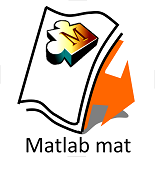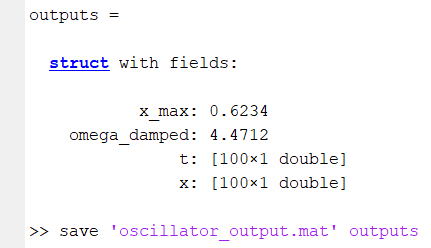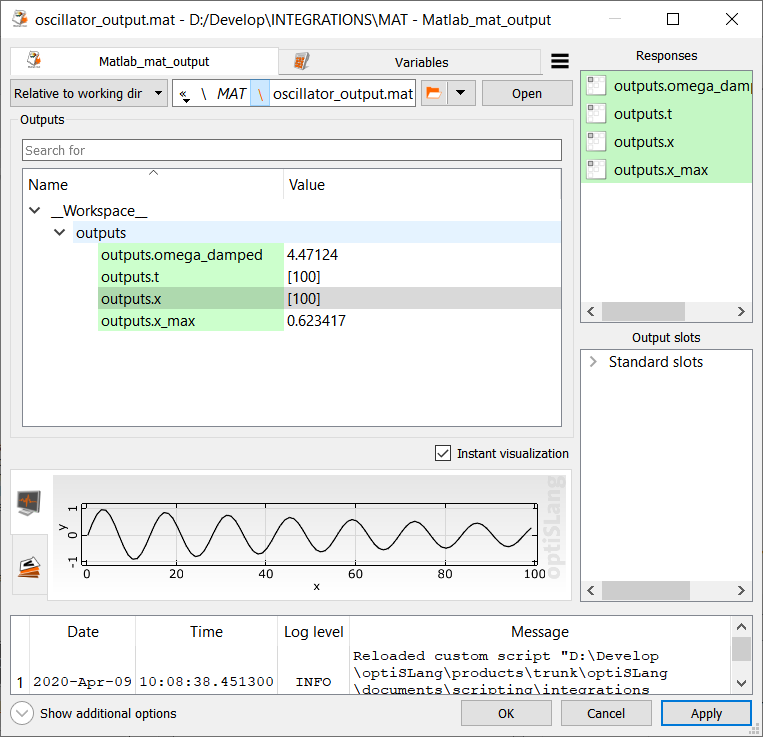
This node provides an interface to *.mat MATLAB data files.
Overview
MAT files are a binary file format to store and retrieve workspace variables in MATLAB. This node uses a Python interface to read and write MAT files and exchange the data with your optiSLang workflow. A MATLAB installation and license is not required to run this node.
Setup
Within MATLAB, save the respective workspace variables to a MAT file using the following command:
save test.mat X
where X is the workspace variable to be stored.
Alternatively, save the entire workspace with save test.mat. Use
structure arrays to group your parameter and response variables. A simple
example is shown below, where the structure outputs contains two scalar and and
two vectorial result variables.

Responses
This node allows you to read fields from *.mat files into optiSLang and use them as responses within any variational study. Within the node dialog, the different fields contained in the MAT file are listed and grouped according to the hierarchy of the structure array. optiSLang supports scalar and vector data types. Matrices and cell arrays are currently not supported.

Parallelization
Desktop parallelization is supported. MATLAB files can be processed concurrently, distributed to multiple CPUs on a single machine.
Run Options
This node has general Run Options. The number of supported options is individual for each node.
Tutorial Examples
Contact Dynardo support (dynardo_support@ansys.com) for tutorial examples.
Troubleshooting
Arrays and cell arrays are currently not supported.
Supported Versions
See the Supported Integration Versions table.


